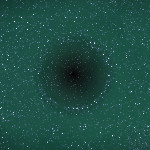I Started Exploration For Profit - And Found Fun On The Way
21 Sep 2016IsraelZulu
They say you shouldn't go exploring for the money.There "they" are again - the ubiquitous, yet undefined "they". Somehow "they" seem to be the source of all the common knowledge that nobody bothers to question. Probably because "they" usually turn out to be more or less right. Or, at least, "they" are right often enough. If nothing else, "they" tend to be right when you most wish they weren't.
But this isn't one of those stories. At least, not quite like the last one was.
There probably is money to be made in exploration. And I'm guessing it's a far safer choice of venture than others. The whole reason my Cobra Mk III is just gathering dust at Gresley Dock right now, is because I got tired of rebuilding it after yet another failed attempt at bounty hunting, rare goods shipping, or something else that gave someone cause to shoot at me.
Heh. Come to think of it, that one didn't have a name either. Maybe I really should think about fixing that.
After I gave up on trying to make my fortunes in the bubble, I dumped most of my savings into kitting out an Asp Explorer for a long-range exploration quest. I stripped the ship down to the bare necessities, added a few survival essentials, threw in a spare tank, and strapped on the biggest FSD it could hold. Then, I set my sights on the newly-popular Colonia Nebula.
Apparently, some bartender with more money than sense had gotten his space station stranded in a system out near that nebula, in a wild attempt to hyper-jump the whole thing all the way to Beagle Point! The station's designation was "80 DD-D 774-CE-2", and the system it landed in was called "Eol Prou RS-T d3-94".
See, they've got "names". Look what good it did for them.
Still, the deep space explorers (and anyone who was tired of the political games at home, for that matter) were hailing this as an opportunity to start a "new bubble". Some had even gone and set up an outpost on a planet near the station, to jump-start development.
This is how it was when I mothballed the Cobra and set out in my new AspX to see what fortunes "the black" held for me. Jaques' station was well over twenty kylies out, so I figured if I could get there then I could probably handle exploring just about anywhere.
Having a station at the other end of the journey would give me a good spot to check in and find out exactly how much this venture could pay out, too. Worst case, if I didn't like the credits, I could probably make at least the same amount on the way back while I figured out what to try next.
For the first part of my trip out, I tried to take my time and "do the job right". Scanned every star, planet, and moon in every system I went through.
Heck, I was even scanning asteroid belts until I heard that Universal Cartographics wasn't paying out for them. That's just ridiculous, really. Asteroids are where most of the space-borne resources are gathered - surely, the miners would be paying high premiums for that data.
Most people don't bother to name asteroids either. Hmm.
After awhile though, I started to get an idea of what "they" were talking about. Hopping from system to system. Doing the same routine over and over again...
- Honk.
- Scoop if you can.
- Scan the main star.
- Scan everything that's in range of the main star.
- Fly to the next-nearest thing, scan that. Repeat until system is fully scanned.
- Target the next system.
- Jump.
- Repeat.
Soon, I began skipping or half-skipping steps just to save time and sanity. Another pilot had helpfully sent out a list of UC's full pay schedule, so I focused on just scanning the high-payout items. Neutron stars, black holes, Earth-like planets, and such.
Eventually, I started passing over most of those planets too. Wouldn't even bother looking at the system map to see what they looked like. I just checked the nav panel for anything within a thousand light-seconds, and moved on after I got through with that. Even within that range, if something was too small to scan from the spot I'd jumped into, I'd just skip it.
I figured that, if it would take me longer to fly into scanning range of an object than it would to hyper-jump to the next system, I'd probably get more credits' worth of data faster by jumping. Most of the time, a hyperjump would put something of value within scanning range much quicker than supercruising for even a few light-seconds.
Fuel scooping also started to become a rarer occurrence, when it hit me that I could easily do fifteen or more jumps in a row instead of stopping to scoop between every one. That very nearly got me into trouble a couple times, though. I've since learned that topping off at the half-way mark on the fuel gauge is usually the best way to stay safe.
So, for most systems, the process became:
- Honk.
- Scan the main star.
- Scan anything else in range of the arrival point.
- Target the next system.
- Jump.
- Repeat.
Some time after I'd started this, I began skipping a lot of system scans entirely. You see, UC pays a rather large bonus for "first discovery" scans. And it seemed to me that there were enough un-scanned systems out there, that skipping over the ones someone else had already marked would end up being more income-efficient.
Then, around a third of the way in, I noticed a priority message had been sitting on Galnet for awhile. It must have come in during one of my sleep cycles. I'd gotten so focused on this routine, and was so far separated from the bubble anyway, that I hadn't actively checked Galnet in - well, I couldn't remember how long.
Whoah. This Colonia movement was apparently starting to pick up again, and someone was going to be paying out high bonuses for exploration data at Jaques' station. And I was a good chunk of the way towards there, with loads of data already stocked up!
The message had said the event was planned to run for four weeks, but there was a limited budget as well - first come, first served. Surely, the veteran explorers would be eating that up rather quickly. And while I might have initially had a head start in my travels, that was definitely negated by how far behind I'd been in catching the news.
I needed to get a move on. Time to trim the process down to the bare necessities.
UC doesn't pay nearly as much for the standard Discovery Scan you get from honking the system, as they do for the more time-consuming Detailed Surface Scans of each body. But they still pay. And honking takes about as much time as the FSD cooldown anyway, so there's practically zero time lost.
New process:
- Honk
- Jump
- Repeat
Once in awhile, I'd break the boredom by taking a look at the nav panel before I left a system. Maybe fly out to investigate a couple things that looked interesting from the cockpit, here or there. But, for the most part, I just hauled ass.
Almost ended up in trouble when I started trying to cut back on fuel scooping again. I'd gotten so drilled into the process that I kept forgetting to check my fuel gauge. So, I decided to make a point of checking the system map between every jump - if only to force myself to breathe long enough that I might notice my tank levels before I left again. Still didn't do a lot of detailed scans, but at least I wasn't running out of fuel.
A couple days later, I finally made it to the "80 double-D-something-or-other" station.
Wow, do they even make them that size?
Ultimately, I'd missed the turn-in window by mere hours. As soon as I dropped into the "Eol Prou Whatever-the-hell-they-call-it" system, I could hear the local news networks already celebrating the massive influx of data the event had driven to the station. Apparently, it was such a big deal that they'd burned through the full four weeks' worth of special funding in just eight days!
Okay. I dunno about my ships, but somebody's definitely gotta rename that place. They didn't even bother to put the whole thing into the headline this time.
Of course, the local Universal Cartographics clerks were buried in back-log from the submissions that had come in during the promotion. There's only so much that the extra event staff could do to help against a flow that was well over four times that which had been planned for. And then, there were the late-comers like myself - more importantly (for me) the ones who were late like me, but still managed to get there just a little bit earlier than I did.
Fortunately, I still had some credits left over from my days in the bubble. Just enough to restock, repair, and get on my way. So, I submitted my findings to the queue and flew off to tool around in some nearby systems until payment for the data came in. If there really was money to be had in exploration, sitting on my butt in the station while I waited wasn't going to bring any more of it in.
Since I'd decided that the income from my trek to Jaques' station would determine my future anyway, this trip had a little less pressure behind it. I didn't have anywhere particular to go, or any specific time I needed to get there. So, this became more of a working vacation for me than a major project.
I told myself I could be a bit more aimless and relaxed this time. Universal Cartographics' back-log was so huge that I'd surely have plenty of time to meander before they got back to me. Fate and fortune could wait a little while.
Even with these thoughts, I still grinded out over a kylie's worth of jumps before I really started to break the routine I'd developed. When I finally did though, that's when I began to fully understand what "they" were talking about.
After I learned to be less trigger-happy with the FSD, and a little less profit-focused on my scans, I started to actually see some of the things that were around me. Soon, I was letting my eyes and my imagination drive my scans - not the sensors and pay charts.
Sure, if I thought a particular system was boring, I'd still limit my scans the high-value or nearby targets and move on. But as that move became less automatic, and more of a deliberate decision, I started to feel like I was actually in the pilot's seat for the very first time - it was me doing the flying, not the money.
Now I've realized that there's really an innumerable amount of star systems out there, with such unique and unimaginable beauty, that money alone can't possibly match. Being out there and seeing these things - actually having the honor of flying among them and landing upon them - that's the "bonus" I got out of coming to the Colonia Nebula. That's something no corporate sponsor could ever offer.
The nebulae are of course some of the most amazing things space has to offer. So far, I think this one is my favorite.
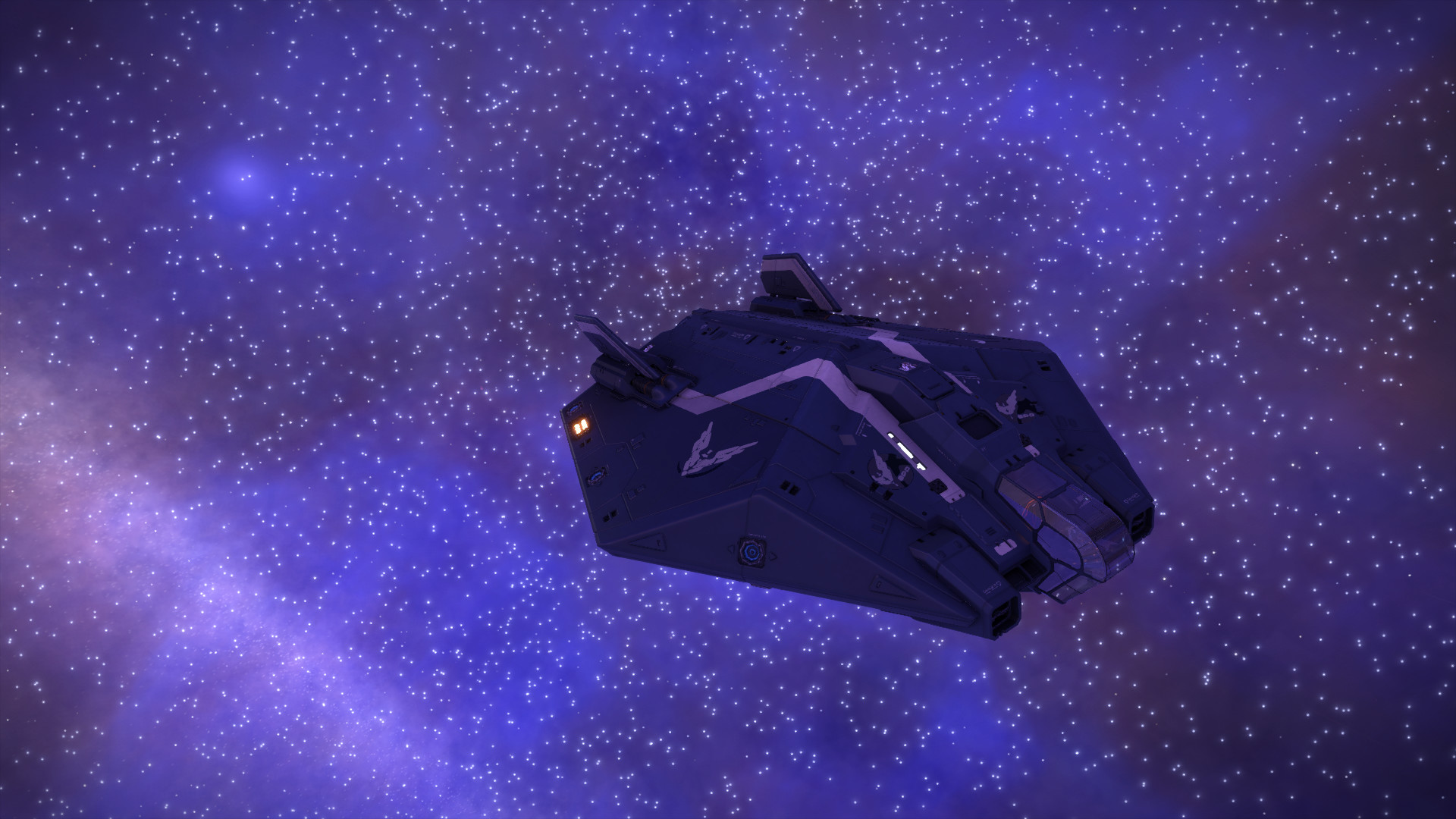
Black holes are awe-inspiring and terrifying all at once!

Find a black hole inside a nebula, and you could be in for a real treat if you're careful.
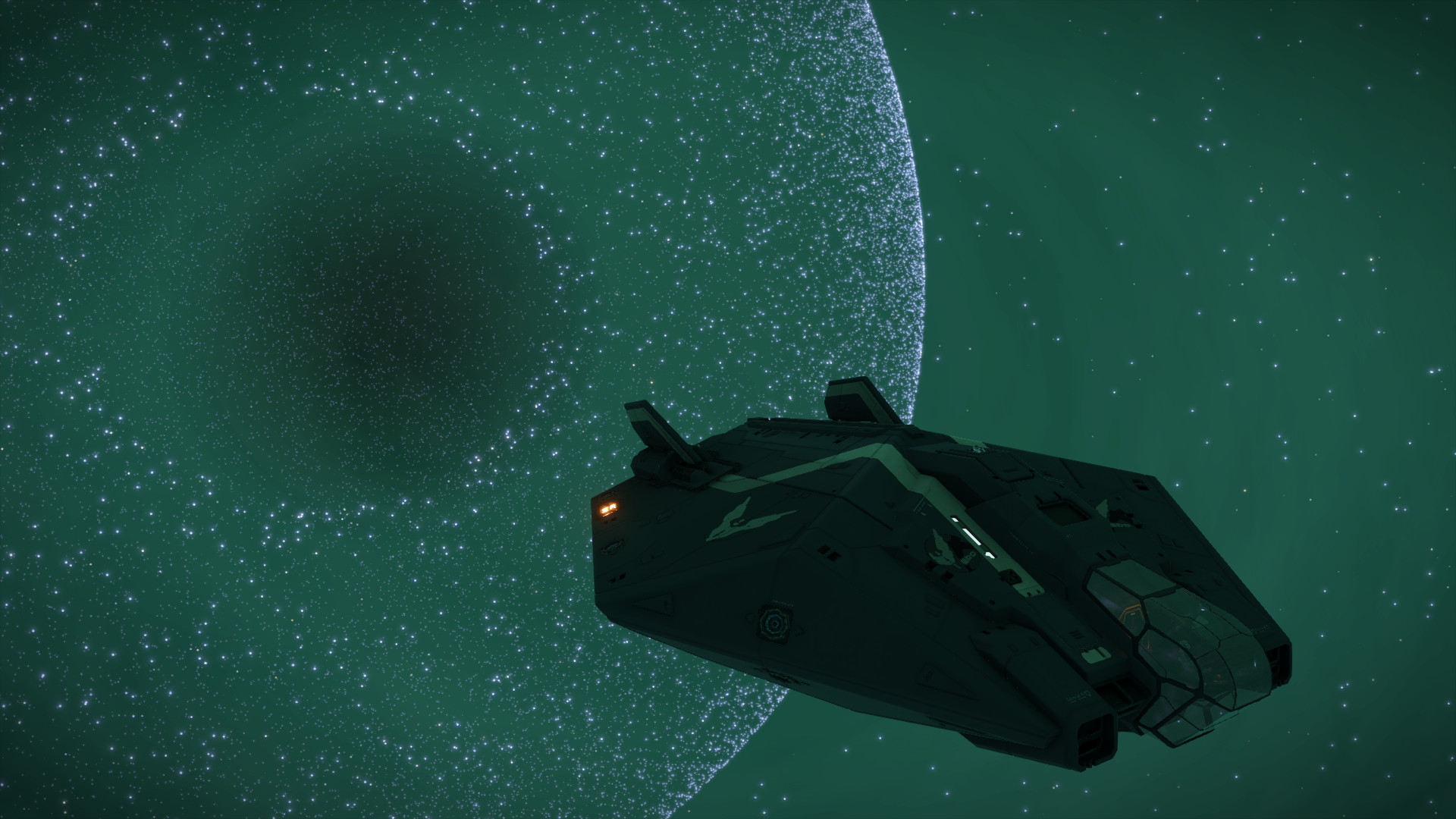
Of course, nebulae are just as gorgeous from the outside, as they are on the inside.
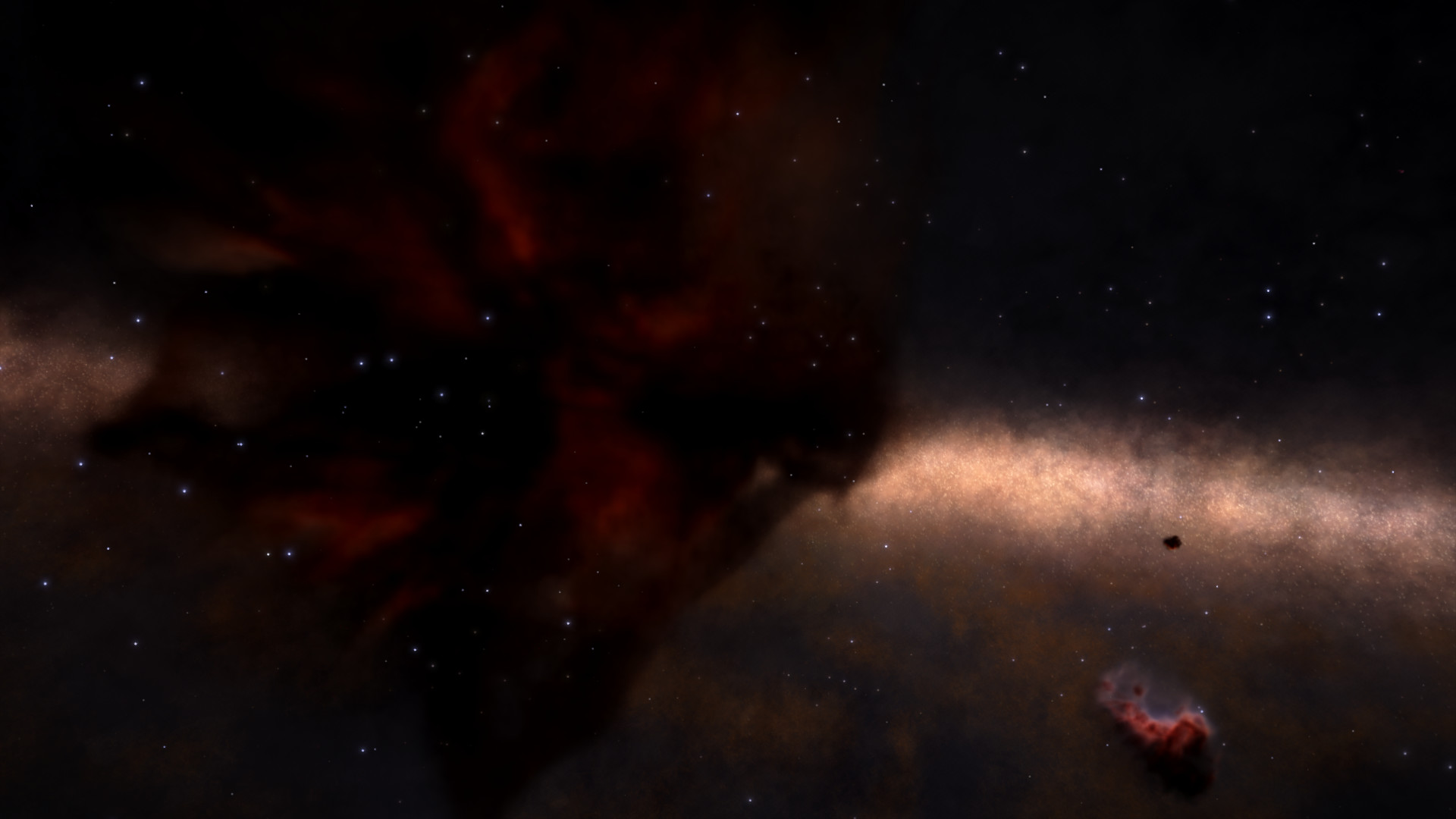
Nebulae and singularities aren't all there is though. There's plenty of eye candy to be had at the planetary scale. Check out the cloud formations on this water world.
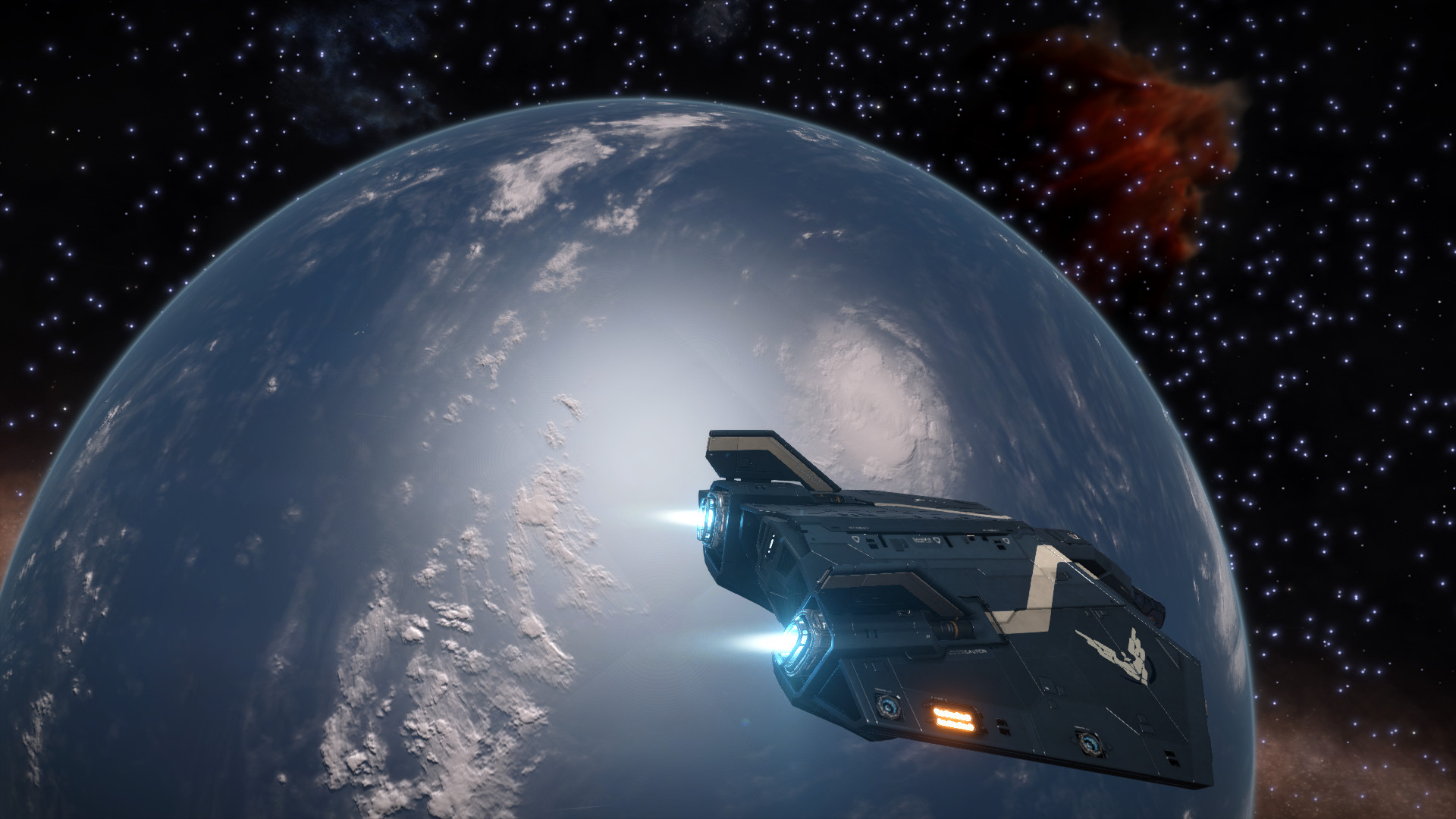
Even the most forbidding of planets can tantalize the imagination. I'm sure every explorer has found one (or a few) like this - a place that could only appropriately be named "Hell".

A nice thing about having a ship that can circle a planet in minutes, is that you get to schedule your own "sunrises".
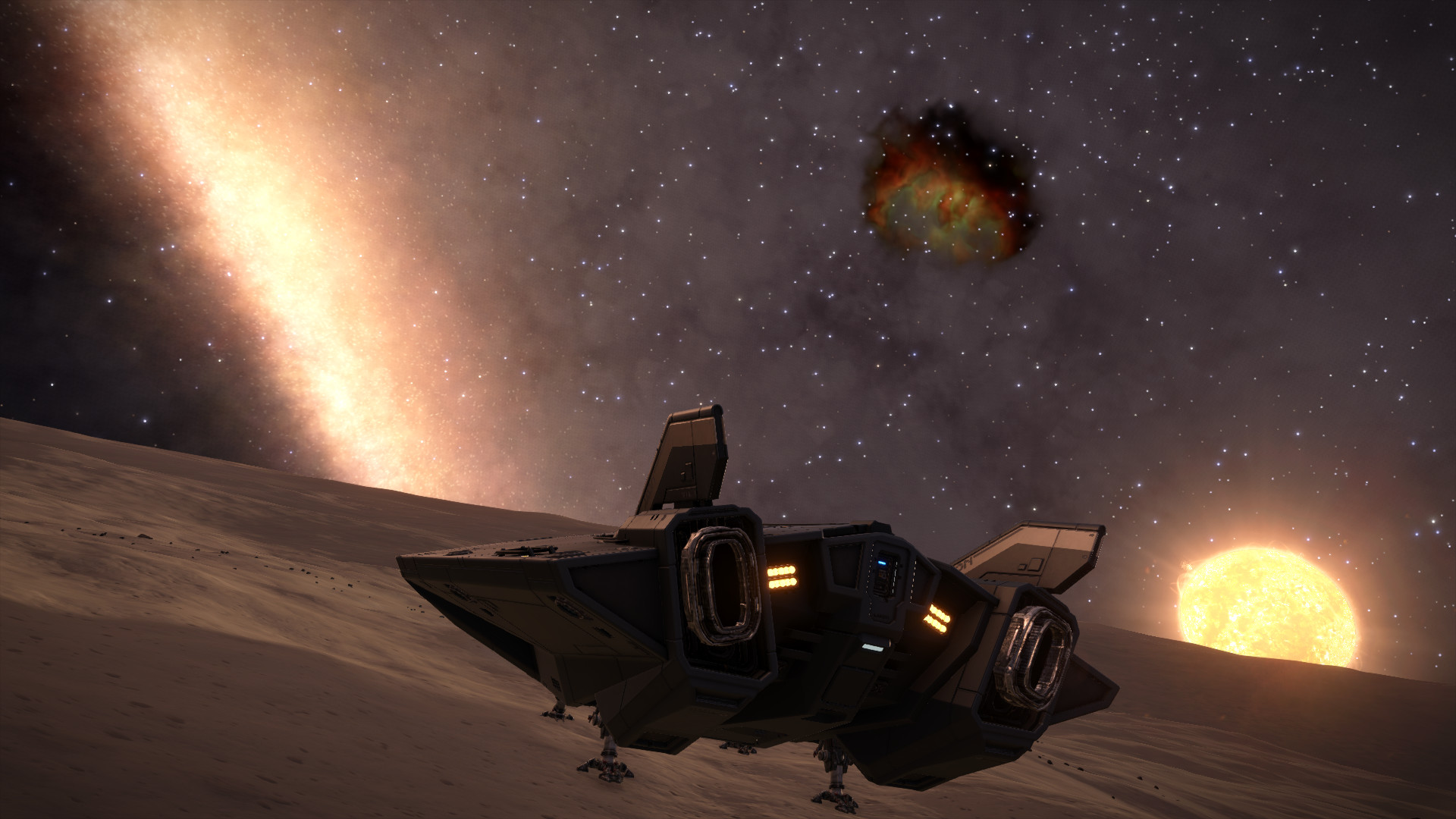
And "sunsets".
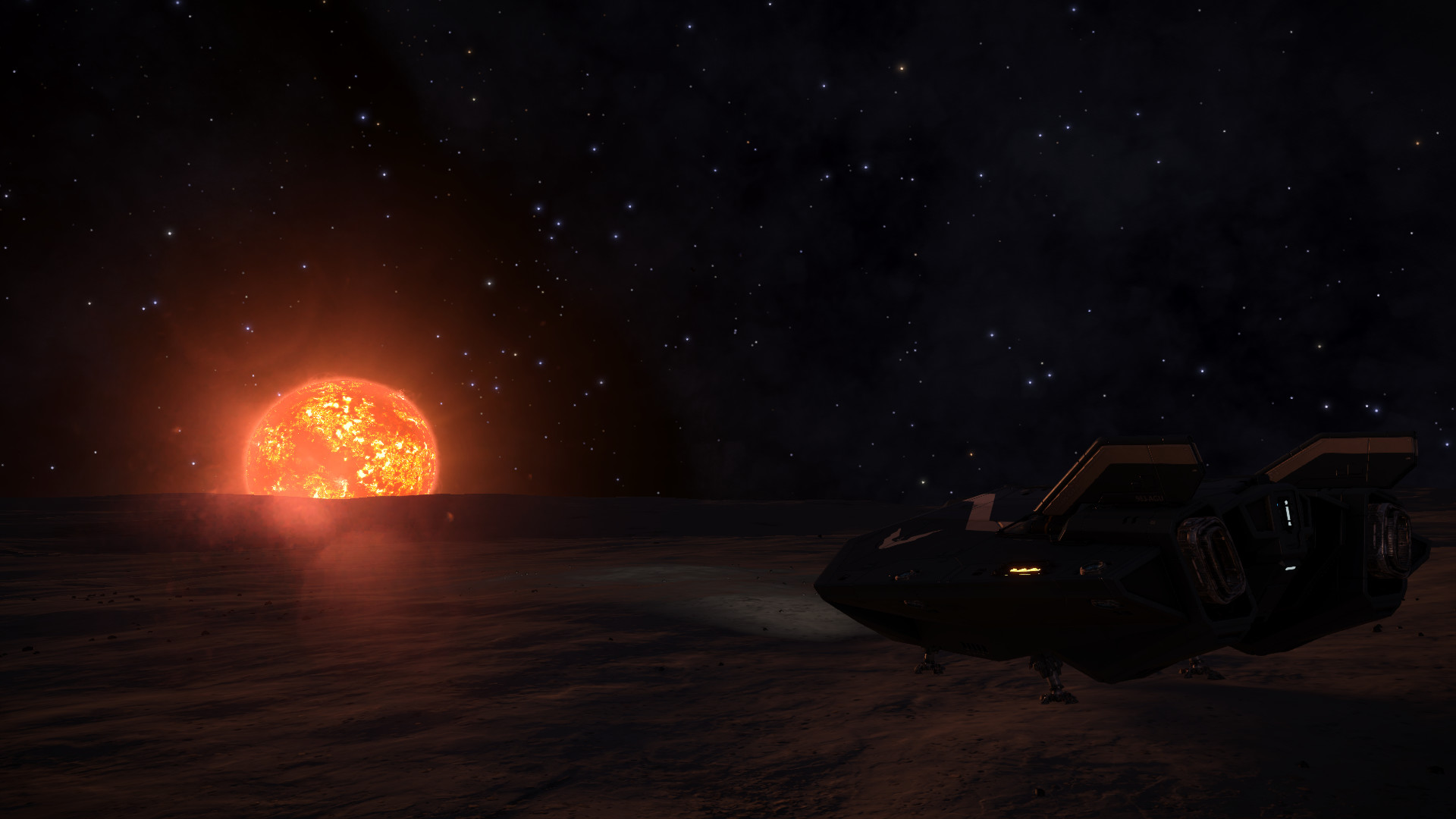
And eclipses, too.
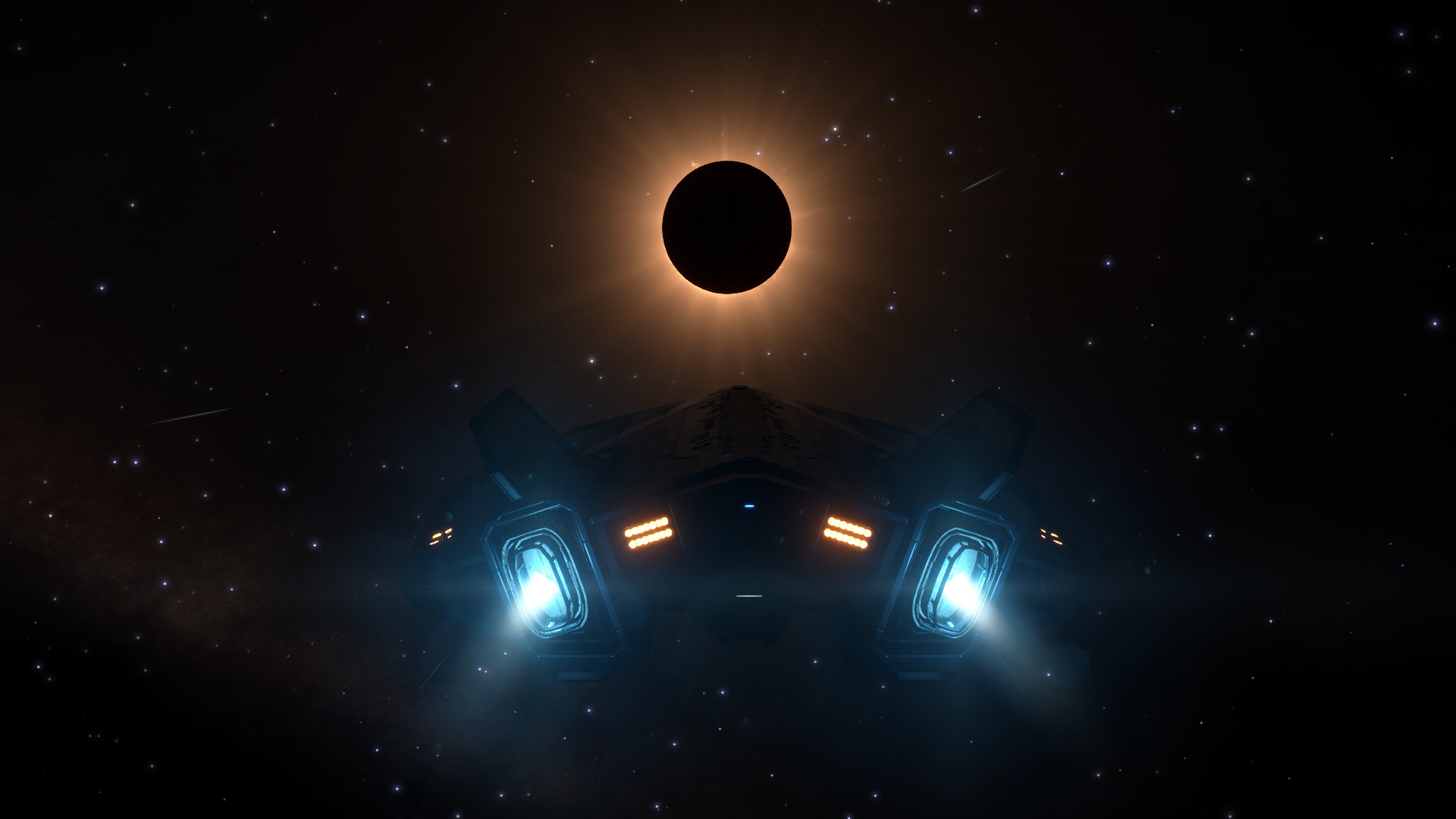
Sometimes, your breath can be taken away just by a simple cluster of rocks.
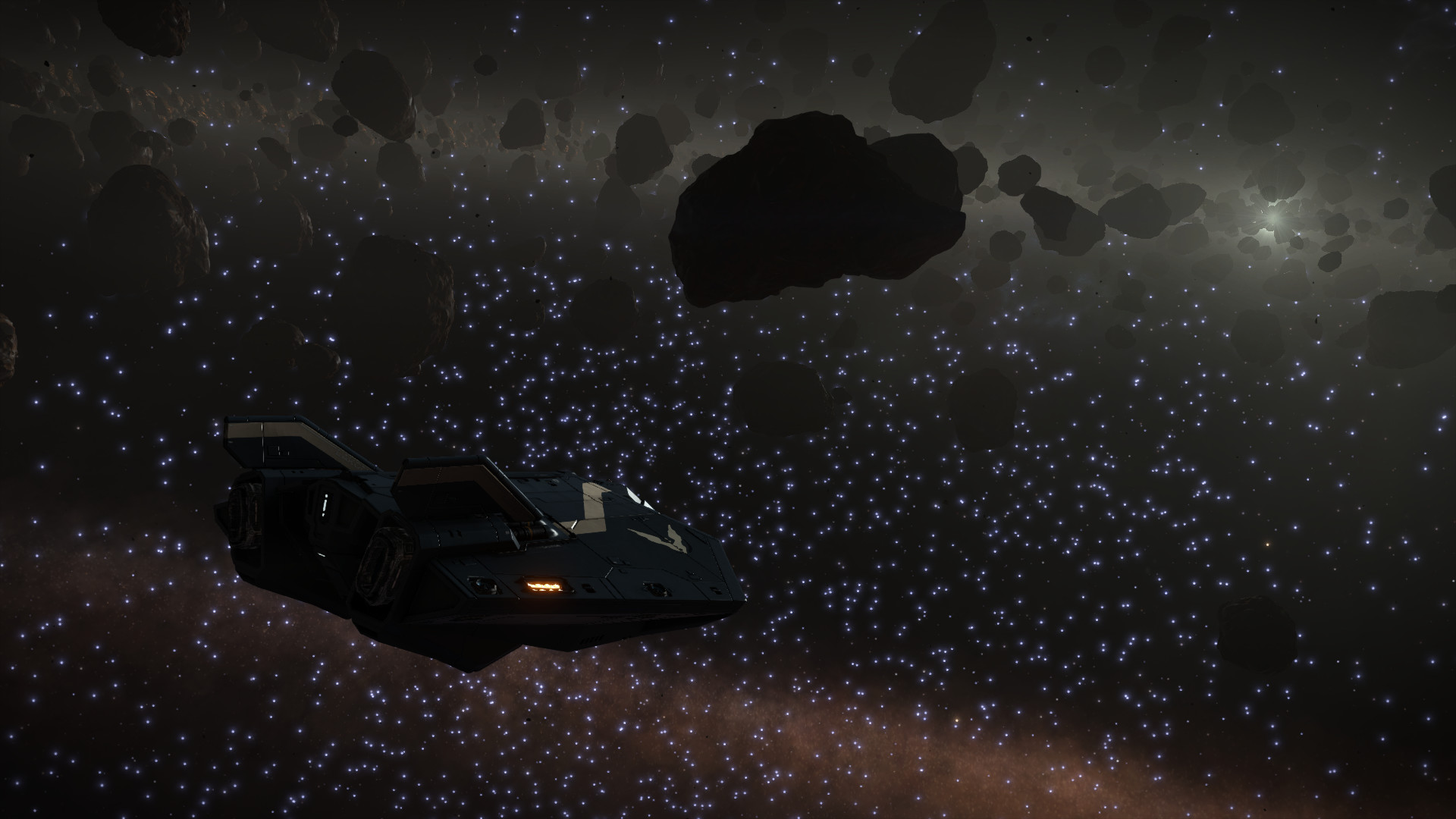
You could go to see all of these for yourself if you'd like. They're all out there, waiting for you, and I'd highly recommend it. But I'm not going to tell you the exact locations of the systems where I saw these things.
Because, as it turns out, there is money in exploration. And I'm not done putting my "first discovery" stamp on that section of space just yet.
You see, I did finally get paid by Universal Cartographics. Even at the standard rate, and having just honk-jumped for most of the trip from Nanomam, my travels to the Colonia Nebula netted more than twelve million credits! That little Asp Explorer had already paid for itself, and most of its upgrades!
If you're not already an explorer, I say you should go exploring even if it's just for the money. Because there is indeed a good amount of money in exploration. And, if you don't like it, you can still rest assured that you'll come back in good enough shape to take on a different career - at least, you stand a better chance with exploration than with other options.
However, the money isn't what keeps an explorer exploring. If you really like being bored out of your mind for days and weeks on end, grinding your way through scan after scan, jump after jump, then I guess it could work for you like that. But it probably won't.
An explorer might start for money, for fame, for an escape from civilization, or even to run from the law. The reasons an explorer sets out from the bubble are almost as varied as the reasons any other pilot might jump into their cockpit.
What keeps the explorers going though, is the beauty and uniqueness of the things that they find. The joy of being the first to discover sights that words can't begin to describe, and seeing them in person with your own eyes. Having the honor of knowing there's places you've been that literally nobody else ever has before you - and that possibly nobody else ever will again.
So, get out there and go find your own systems to scan. For whatever reasons you like. Just try to take a few minutes and look outside the cockpit while you're at it. The money might get you going, but what's out there is what will keep you there.
